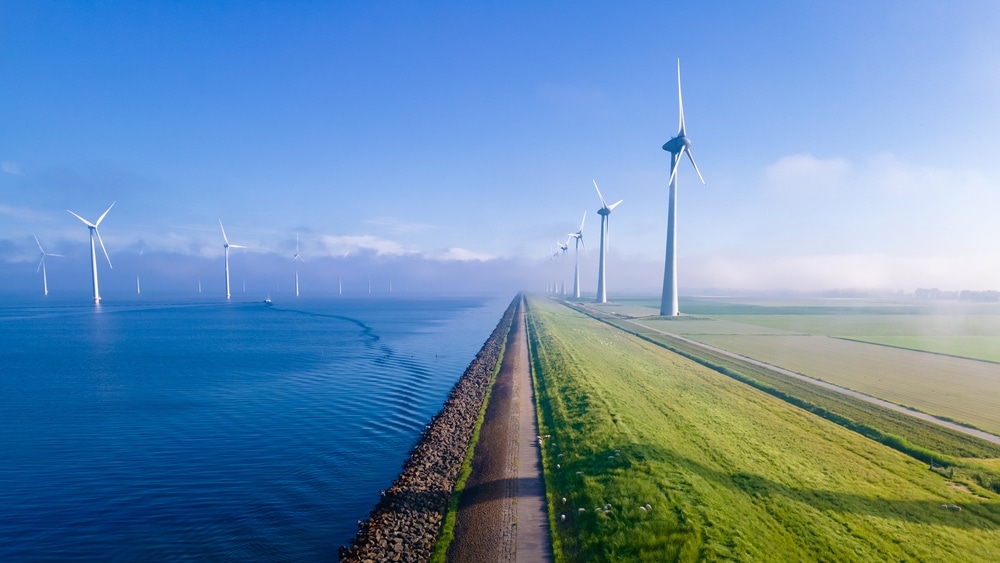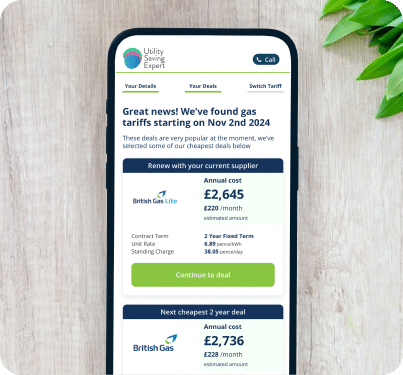Balancing Your Energy Load: Tips and Tricks for UK Business Owners
In today’s fast-paced and competitive business landscape, achieving energy balance is of paramount importance for UK businesses. Striking the perfect equilibrium between energy consumption and output saves your organisation money and significantly reduces its environmental impact.

Article Contents
Introduction: Achieving Energy Balance for UK Businesses
With heightened global awareness of climate change and sustainability, businesses must stay ahead by adopting efficient energy management strategies.
Optimising energy usage translates into financial savings and enhances a company’s reputation as an environmentally responsible entity. Businesses can maximise productivity by identifying inefficiencies and implementing targeted solutions while minimising their carbon footprint. The benefits of this approach are twofold: it bolsters the bottom line and helps preserve the planet for future generations.
Achieving energy balance requires a comprehensive understanding of your organisation’s unique needs and goals and a commitment to continuous improvement.
Here is an overview of tips and tricks to help you on this journey:
- Conduct regular business energy audits to identify areas of inefficiency or waste.
- Invest in energy-efficient technologies and equipment that reduce consumption without compromising performance.
- Implement energy management software to monitor, analyse, and optimise usage patterns.
- Encourage behavioural changes among staff through training, incentives, or office policies that promote energy conservation.
- Explore renewable energy sources such as solar or wind power to supplement traditional sources and reduce reliance on fossil fuels.
By taking these steps towards balancing your organisation’s energy load, you’ll reap significant rewards in reducing your business energy costs, enhancing brand reputation, and reducing environmental impact.

Compare Business Energy Prices, Suppliers & Rates

Understanding Your Business’s Peak Usage Times
Understanding your business’s peak energy usage times is vital to achieving cost efficiency and reducing your environmental impact. By analysing energy consumption patterns, you can identify peak hours and take necessary measures to optimise energy usage during these critical periods.
Every business has unique energy requirements; therefore, delving deep into your organisation’s intricacies is essential. Examine historical data, conduct energy audits, and utilise advanced monitoring systems to unveil the nuances of your energy consumption habits. This comprehensive analysis will reveal specific timeframes where your business experiences increased demand and higher costs.
The consequences of failing to address peak hours may be detrimental to your bottom line. The impact of these heightened consumption periods can lead to inflated energy bills and excessive carbon emissions, jeopardising your company’s financial stability and sustainability efforts.
Optimising energy usage during peak times is crucial in mitigating these negative outcomes. Some approaches include:
Load shifting: Rearrange operations to move non-essential tasks outside of peak hours, thus alleviating pressure on the system.
Demand response programme: Collaborate with your energy supplier to participate in initiatives that reward businesses for reducing their consumption during high-demand periods.
Energy-efficient equipment: Invest in cutting-edge technology that minimises power consumption without compromising performance.
Behavioural changes: Encourage employees to adopt mindful practices around energy conservation, such as turning off lights or powering down devices when not in use.
By implementing these strategies, you can successfully navigate peak usage times and achieve a harmonious balance between operational efficiency, cost savings, and environmental stewardship. Don’t delay – start optimising your energy consumption patterns today!
Off-Peak Optimisation: capitalising on Lower Energy Rates
Capitalising on off-peak energy rates is a game-changing strategy for businesses that seek to maximise their savings and contribute positively to the environment. By harnessing the power of off-peak hours, businesses can profit from reduced energy costs while supporting sustainable operations.
Time-of-use tariffs offer an enticing advantage: lower business electricity rates during periods of diminished demand. Typically, these tariffs provide significant cost reductions in the early morning, late evening, or overnight hours when energy consumption is generally lower. By strategically scheduling operations around these off-peak periods, businesses can cash in on substantial savings and boost their bottom line.
To make the most of these off-peak tariffs, it’s crucial for businesses to implement energy-saving measures during low-demand hours. Consider these innovative strategies for unlocking the full potential of off-peak optimisation:
- Adjust operational schedules: Reschedule energy-intensive processes to take advantage of off-peak hours. For example, run manufacturing equipment or perform system maintenance during times of reduced energy rates.
- Implement smart technology: Utilise intelligent heating and cooling systems that automatically adjust according to real-time demands, ensuring optimal performance during off-peak hours.
- Encourage remote working: If possible, allow staff members to work during off-peak hours, thus reducing overall energy consumption at the office.
- Invest in energy storage solutions: install batteries or other energy storage systems to store excess generated power during off-peak times for later use when demand is higher.
By capitalising on lower energy rates and optimising operations during off-peak hours, your business will reap financial rewards and make a tangible impact on sustainability efforts.
Like what you’re reading? Get more in our monthly newsletter!
Get the latest news and articles straight to your inbox from Utility Saving Expert
Customising Energy Plans for Seasonal Fluctuations
As the seasons change, so do the energy demands of your business. Adapting your business gas or electricity plan to accommodate these seasonal fluctuations is crucial for maintaining operational efficiency and minimising costs. Customising an energy strategy that aligns with your unique needs will ensure smooth sailing through the peaks and troughs of the year.
Seasonal adjustments are not merely a matter of tweaking settings; they are an opportunity to reassess your energy consumption holistically. By conducting regular audits, you can pinpoint inefficiencies and devise tailored solutions that cater specifically to your business’s seasonal requirements. This proactive approach can result in substantial operational savings and a reduced carbon footprint.
Renewable energy sources are a significant factor to consider when adjusting for seasonal fluctuations. Solar, wind, and hydroelectric power offer reliable alternatives to traditional fossil fuels, and their inherent variability complements the ebb and flow of seasonal energy demands. Integrating renewable energy into your customised plan can help stabilise overall consumption while promoting sustainability.
To create a tailored plan for your business, consider the following steps:
- Analyse historical data: Examine past energy usage patterns to identify trends and anticipate future demand.
- Invest in efficient equipment: Replace outdated or inefficient equipment with more energy-efficient models.
- Monitor consumption: Implement smart metres or monitoring systems to track real-time usage data.
- Evaluate renewable options: Assess the feasibility and potential benefits of incorporating solar panels, wind turbines, or other renewable sources.
- Engage employees: Encourage staff members to adopt eco-friendly practices that contribute to overall energy savings.
Embracing a customised energy plan that accounts for seasonal fluctuations allows your business to optimise its operations while reducing costs and environmental impact. by taking charge of your energy consumption, you’ll enhance profitability and contribute positively towards a greener future. the time has come for businesses like yours to seize this opportunity – adapt, innovate, and thrive!
Balancing Energy Load Across Multiple Locations
Managing energy consumption across multiple locations presents a complex challenge for businesses. With diverse energy requirements, fluctuating demands, and site-specific considerations, it’s crucial to implement a strategic approach to balance the energy load evenly. But worry not! As an expert in achieving energy efficiency, I’m here to provide you with the essential strategies that will empower your business to conquer this challenge like a pro.
Firstly, let’s talk about the importance of centralised monitoring. Implementing an advanced energy management system (EMS) lets you gain real-time insights into each site’s consumption patterns. The beauty of an EMS is its ability to consolidate data from all your locations into one easy-to-understand platform. This allows you to identify inefficiencies, track performance, and make informed decisions on distributing energy load evenly across your sites.
Now imagine harnessing the power of automation to optimise your energy usage. Integrating smart technologies like IoT devices and AI-driven algorithms allows you to create a seamless energy distribution network that adapts to fluctuating demands with minimal human intervention. This automated approach ensures that each location runs at peak efficiency without overloading any single site.
Renewable energy sources play a pivotal role in managing multi-site energy loads too. Investing in solar panels or wind turbines contributes to sustainability efforts and provides a reliable power source during periods of high demand. Incorporating renewables into your strategy can effectively mitigate energy load imbalances across multiple locations.
Conquering the complexities of multi-site energy management is no small feat – but with the right strategies and tools at your disposal, it’s entirely achievable. embrace centralised monitoring, automation, and renewable energy sources to distribute your energy load evenly and propel your business towards unparalleled efficiency and sustainability.
Reducing Risks and Budgetary Pressures with Flexible Energy Plans
In today’s fast-paced, competitive business world, the ability to buffer against unforeseen energy costs and reduce budgetary pressures is paramount. Flexible energy plans play a crucial role in achieving this objective, providing businesses with the stability and confidence needed to thrive.
Risk mitigation strategies are essential for safeguarding your business from unexpected energy costs. By implementing custom pricing and usage strategies, you can secure long-term savings, ensuring that your organisation enjoys consistent financial health. So how can you harness this potential to propel your business forward?
The first step is to analyse historical data and identify patterns in your energy consumption. This valuable insight will reveal opportunities for optimising usage and capitalising on lower rates during off-peak hours. Don’t let this goldmine of information slip through your fingers!
Next, consider incorporating renewable energy sources into your strategy. Solar panels, wind turbines, and other green alternatives can help stabilise overall consumption while contributing to a sustainable future for our planet. Remember, going green isn’t just a fashionable trend – it’s an investment in the long-term success of your business.
Finally, foster a culture of energy-conscious behaviour among employees by promoting eco-friendly practices that contribute to overall savings. After all, every individual effort counts towards achieving a collective goal.
By embracing flexible energy plans and risk mitigation strategies tailored to your unique needs, you’ll reduce budgetary pressures and fortify your business against the unpredictable nature of energy costs.
Tracking and Reducing Your Business’s Carbon Footprint
Your business’s energy usage profoundly impacts the environment, and as a responsible leader, you must be conscious of your company’s carbon footprint. By tracking and reducing your carbon emissions, you contribute to environmental sustainability and enhance your brand’s reputation.
To meticulously monitor and manage your business’s carbon footprint, employ cutting-edge tools and techniques that provide comprehensive insights into your energy consumption patterns. These tools can help you identify inefficiencies and opportunities for improvement – an essential first step towards creating a greener future.
Implementing energy efficiency measures is indispensable for minimising your business’s environmental impact. Consider these strategies to reduce your carbon footprint dramatically:
- Invest in energy-efficient equipment: Replace outdated machinery and appliances with state-of-the-art, eco-friendly alternatives designed to conserve energy.
- Utilise renewable energy sources: Harness the power of solar panels, wind turbines, or other sustainable energy options to decrease dependency on fossil fuels.
- Optimise operational processes: Streamline workflows and schedules to maximise efficiency during periods of low energy demand.
- Empower employees: Encourage staff members to adopt environmentally conscious practices in their daily routines, such as turning off lights or computers when not in use.
By incorporating these measures, you’ll reduce risks associated with fluctuating energy costs and contribute significantly to the global fight against climate change.
Conclusion
In the dynamic world of energy management, striking a perfect balance between consumption and efficiency is crucial for any business’s success. Throughout this discussion, we’ve explored practical tips and tricks to help you optimise energy usage and mitigate associated risks.
From customising energy plans according to seasonal fluctuations to managing the energy load across multiple locations, businesses can reap the benefits of tailored solutions designed to meet their unique requirements. Implementing flexible energy plans alleviates budgetary pressures and empowers businesses to take control of their future by mitigating unforeseen costs.
Additionally, tracking your business’s carbon footprint and adopting sustainable practices is no longer an optional endeavour; it’s a responsibility that every organisation must embrace. By incorporating renewable energy sources and implementing eco-friendly measures, UK businesses can pave the way towards a greener future.
In summary, taking control of your company’s energy usage and costs is essential in achieving long-term success. By employing innovative strategies such as customised energy plans, flexible pricing models, and embracing renewable resources, businesses can thrive in an increasingly competitive market while reducing their environmental impact.
Now is the time for your business to seize the opportunity and gain a competitive edge by proactively managing its energy consumption. With these expert insights, you possess the knowledge and tools necessary to make informed decisions that will benefit your bottom line and the environment. Embrace change today – your future self will thank you!
To pinpoint the ideal energy tariff for your business, begin by analysing your company’s unique consumption patterns and requirements. Next, compare business energy suppliers and their offerings to identify the most cost-effective and sustainable options. Enlisting the help of an energy broker or consultant can streamline this process, equipping you with expert insights and tailored advice.
Harnessing renewable energy sources offers numerous benefits, including reduced dependency on fossil fuels, decreased greenhouse gas emissions, long-term cost savings, and enhanced brand reputation as an eco-conscious business. Moreover, investing in renewables can buffer against volatile energy market fluctuations, creating a stable foundation for your enterprise.
Absolutely! Energy brokers and consultants possess invaluable expertise in navigating the complex world of energy management. Their services encompass analysing your company’s consumption patterns, identifying inefficiencies, recommending cost-saving measures, and finding suitable tariffs tailored to your specific requirements. Collaborating with these professionals ensures you make informed decisions to optimise your energy usage.
Staying competitive in the ever-evolving energy market requires a proactive approach to managing consumption, costs, and sustainability practices. Key strategies include adopting customised energy plans, implementing efficiency measures, leveraging renewable resources, and continuously monitoring your company’s performance against industry benchmarks.
Risks associated with energy usage include fluctuating costs due to market volatility, increased carbon footprint leading to environmental concerns, and non-compliance with regulatory standards. To mitigate these risks, consider adopting flexible pricing models, investing in renewables and other sustainable practices, using advanced monitoring tools like EMS systems to track consumption patterns, and working with consultants or brokers to ensure compliance with industry regulations.
